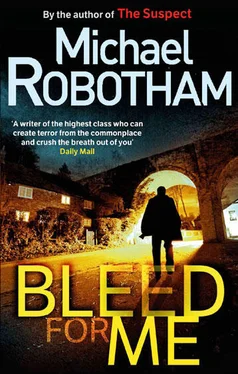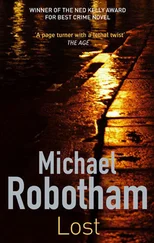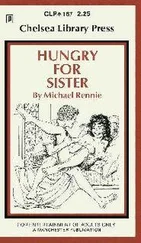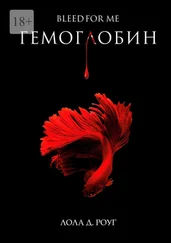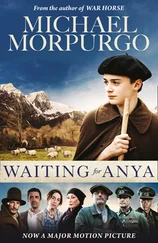‘What did you say?’ asks Julianne.
‘Nothing.’
‘You sounded like Santa Claus.’
‘Sorry. So where is he taking you?’
‘To a new restaurant. He knows the owner or the head chef - something like that.’
‘What about the girls?’
‘Charlie can babysit.’
‘I’ll do it.’
Julianne arches an eyebrow. ‘Charlie’s old enough.’
‘I know.’
She reaches across the table and takes my hand. ‘You’ll have to let go one day.’
Is she talking about the girls or herself?
‘I don’t want to let go.’
Her pupils dilate slightly and she releases my hand, folding her arms beneath her breasts like a teenager. I’ve upset her now. She changes the subject.
‘Charlie says you kissed Miss Robinson.’
‘She gave me a peck.’
‘On the lips?’
‘Some people peck on the lips.’
‘I’ve always found that kind of creepy,’ she says playfully. ‘It was Miss Robinson who suggested Charlie see a therapist. Apparently, some of the teachers are worried about her.’
‘Miss Robinson didn’t mention anything.’
‘That’s because she was flirting with you.’
The silence stretches out and is far more uncomfortable than it should be after so many years of marriage.
‘Did Miss Robinson mention Sienna coming to see her?’
Julianne shakes her head. ‘Maybe you should ask her. Take her for a drink.’
‘I don’t want to ask her out.’
‘She’s very pretty.’
‘Yes, but . . .’
‘But what?’
‘She’s not you .’
Julianne shakes her head and drains her wine glass. ‘This was nice, Joe. Don’t spoil it.’
Summoning a waiter, she asks for her coat and leans towards me, accepting a kiss - a peck on the cheek, not the lips.
Almost in the same breath she hesitates, looking over my shoulder.
‘Is something wrong?’
‘I’m not sure.’
I follow her gaze. A man is standing on the corner, looking towards us. Pale and blade-faced, his dark oiled hair is combed back in vertical lines that cling to his scalp like the contours of a map. The tattoos on his forearms have faded with age into blue and black smears, but the most startling markings are ink lines drawn vertically down his cheeks like twin channels for his tears that extend from his lower eyelids to his jawline.
Usually, I study people instinctively, reading their body language, their clothes, their fleeting expressions, trying to understand who they are or what motivates them and what they’re capable of. This time it is different. I don’t want to notice this man. I want to look away. I want to ignore him.
Julianne is staring at him.
‘He was in court,’ she says. ‘I saw him sitting in the gallery.’
‘Today?’
‘Every day.’
The school grounds are empty apart from a gym class running around cones on the playing fields with batches of students in the goal squares and on the halfway line. I ask at the main office for Annie Robinson and am directed to her office. The note pinned to the door says she’s in the hall, painting sets for the musical.
Following a covered walkway, I pass several classrooms in the science block. Groups of students are wearing safety glasses and stand clustered around benches working with Bunsen burners and test tubes.
The main body of the hall is in darkness. There are lights burning backstage. Nobody answers when I call. Climbing the side stairs, I step over cables and paintbrushes soaking in jars. Props are leaning on sawhorses and a large backdrop shows a Manhattan skyline with the skyscrapers in silhouette. Modern Millie meets the Big Apple.
A dressing-room door is ajar. Racks of costumes are lined up along the wall. A movement is reflected in the mirrors. Miss Robinson leans over a sink sponging paint from her blouse. Her black skirt contrasts sharply with the paleness of her skin. I can see the outline of her nipples, small and dark, through the lace of her bra.
She looks up from the running water, studying herself in the mirror. Her eyes meet mine. Pulling her shoulders back, she makes no attempt to cover her breasts.
‘Can I help you?’
‘I knocked. You didn’t hear me.’
‘Obviously.’
She goes back to sponging her blouse. ‘I should have worn an old shirt,’ she explains. ‘This is my favourite blouse and now it’s ruined.’
‘Maybe you could soak it,’ I suggest.
‘Are you an expert on removing paint stains?’ She has a slight lisp when she pronounces her ‘s’s. ‘You can come in, Joseph, I’m sure you’ve seen a woman in a bra before.’
It sounds like a question, but I can’t think of anything to say.
Miss Robinson laughs and holds up the blouse to the light, sighing. ‘I’ve been painting the sets. I had a free period and thought I’d get it finished today, but it might take another session.’
‘I thought the musical had been postponed.’
‘Yes, but we’re still hopeful. The show must go on - as they say.’
She slips the blouse over her arms and turns to me as she does up the buttons.
‘So what else can I do for you today - apart from giving you a cheap thrill?’
‘You were talking to Julianne about Charlie.’
‘Yes.’
‘Is she having problems?’
‘One of her teachers found her crying in a classroom. I thought it might help if Charlie talked to someone.’
‘A therapist.’
‘The school recommends a very good one.’
I’m fascinated by her mouth; watching it move as she speaks. Her top lip is shaped like a stylised bird drawn by a child. Her bottom lip is fuller. I wonder what it would be like to kiss those lips. They have stopped moving and are slightly parted. Her head is cocked at an angle.
‘You’re staring at me,’ she says, covering her mouth self-consciously.
‘I’m sorry. I do that sometimes.’
‘It’s very unnerving.’
‘Can I ask you something, Miss Robinson?’
‘Only if you call me Annie.’
‘Has Charlie talked to you about the separation? You see, she hasn’t spoken to me or to Julianne. I thought maybe she was keeping a diary, or a scrapbook full of angry conversations in cartoon bubbles.’
‘She didn’t say anything to me.’
‘It was just a thought.’
‘Have you asked her?’
I make a sound that could be a sigh or a murmur of agreement. ‘We don’t have long conversations any more.’
‘Maybe you should think about the therapist.’
‘Maybe.’
Annie waits.
‘Was Sienna Hegarty seeing a therapist?’
‘I’m not allowed to talk about other students.’
Businesslike, she makes her arguments about privacy and confidentiality. A counsellor must build trust, respect personal space, protect confidences . . .
‘I respect all of that, Annie, but Sienna is a murder suspect. The police think she killed her father. I know she was cutting herself. I strongly suspect she was being sexually abused. If Sienna was seeing a therapist, the police will want to talk to him.’
Annie lowers her eyes, no longer certain what to do.
‘Why are you here?’ she asks.
‘I’m trying to help her.’
‘Why?’
There is an accusation in her tone, a scepticism that makes her less attractive.
‘Because I think Sienna is damaged and because she’s my daughter’s best friend.’
‘It’s more than that.’
Her eyes are fixed on mine, searching.
‘Sienna was always at our place - staying for dinner or overnight, spending her weekends with us. Now I think she was avoiding going home. I should have realised.’
As the words leave my lips I realise how they echo an inner voice that has been whispering to me ever since Zoe Hegarty’s visit. It’s as though I have a soundtrack playing in my head, along with images of a child waking each morning without seeing a world full of excitement and possibility. A child who didn’t go skipping down the stairs to greet each new day; who didn’t wear the bright, eager expression that said, ‘Hey, isn’t it great to be alive!’
Читать дальше
